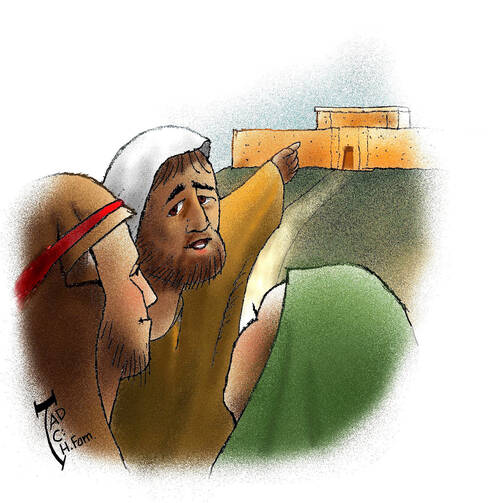The Family of God
My sister-in-law posted a video on Facebook recently in which the oldest member of our family, my mother, soon to be 90 years old, is walking down the hall of her residence with a walker. In front of her, pushing a bright, primary-colored walker, is her great-grandson, soon to be 1 year old, babbling and cooing as he looks back at his great-grandmother. The picture envelops the generations of family and captures the beginning and the end of the stages of human life. Every stage is precious; every stage a sign of our love for one another and of God’s love for us.
My now elderly mother was born in a prairie farmhouse in Saskatchewan in 1926, prematurely and not expected to live; but her mother, her aunts and her older sisters did their best to keep her alive and thriving. Life is so ordinary and so precarious, yet families accept the risks and dangers as the love of family transcends these existential threats. It is not only mothers and fathers who choose life, though, but most significantly God.
Infertility was a mark of shame in many ancient cultures; and Hannah, Samuel’s mother, was unable to have a child. Finally, Hannah’s prayers were answered when she became pregnant and gave birth to Samuel. She saw her son Samuel as a gift from God, as truly every child is, and offered him back to God after he was weaned. Though most of us could not make Hannah’s decision to offer her young son fully to God’s service at so young an age, all of us are intended to serve God.
For we not only belong to our families here on earth; we belong to God’s family. We see this in Hannah’s dedication of Samuel to God’s service in the Temple, and we see it in Jesus’ own recognition that the Temple in Jerusalem was his true home. But Jesus’ call to serve God and his recognition that he was indeed the Messiah, the Son of God, took place within the context of his earthly family.
The only story of Jesus’ boyhood in the canonical Gospels, Lk 2:41–52, places the boy Jesus in the midst of an extended kinship network: “Assuming that he was in the group of travelers, they went a day’s journey. Then they started to look for him among their relatives and friends.” His parents do not seem overly worried initially about the fact Jesus is missing, because they would expect him to be among their extended family of relatives and neighbors, including perhaps elderly grandmothers and wobbling toddlers.
Joseph and Mary are ultimately filled with anxiety (Lk 2:48), as any parents would be; and when they find their child, they ask him, “Why have you done this to us?” Jesus replies, “Why were you searching for me? Did you not know that I must be in my Father’s house?” Jesus calls the attention of his earthly family to the precedence of God the Father in his life.
Jesus’ response points to the priority of God the Father over human family in general. A tension persists, even though Jesus has been found. The lost child was truly at home with God. As much as he is a child of Mary and Joseph, he is even more a child of God—in his case, the Son of God. As the First Letter of John tells us, though, we are all children of God, and all of us are intended for life with God the Father.
Christianity, following Judaism, did refocus the understanding of family to recognize the true family, which ultimately encompasses all of humanity and sees the true Father as God. Still, Jesus, like all of us, had responsibilities to the family and a place in the earthly family, as do 1-year-olds, 90-year-olds and everyone in between. Luke’s account ends with Jesus acknowledging his earthly parents’ authority, and Luke states that Jesus was obedient, or subject to them following his adventure. The way we come to know our heavenly family and heavenly call is through our parents, our extended families, those who raised us, who in encompassing us with love draw us nearer and nearer to God and our home with God.
This article also appeared in print, under the headline “The Family of God ,” in the December 21-28, 2015, issue.








